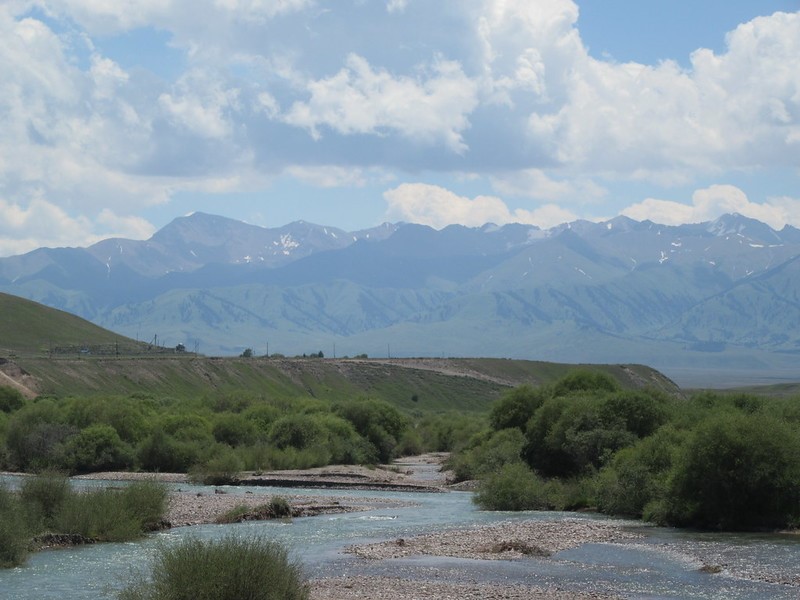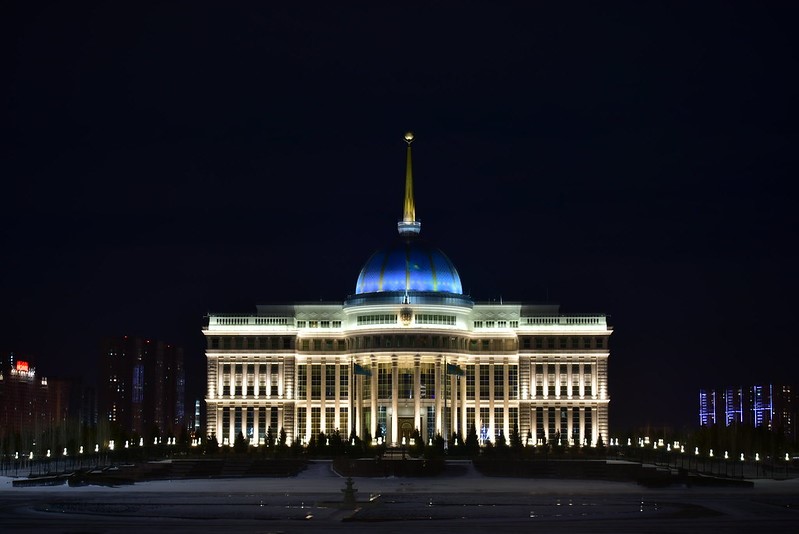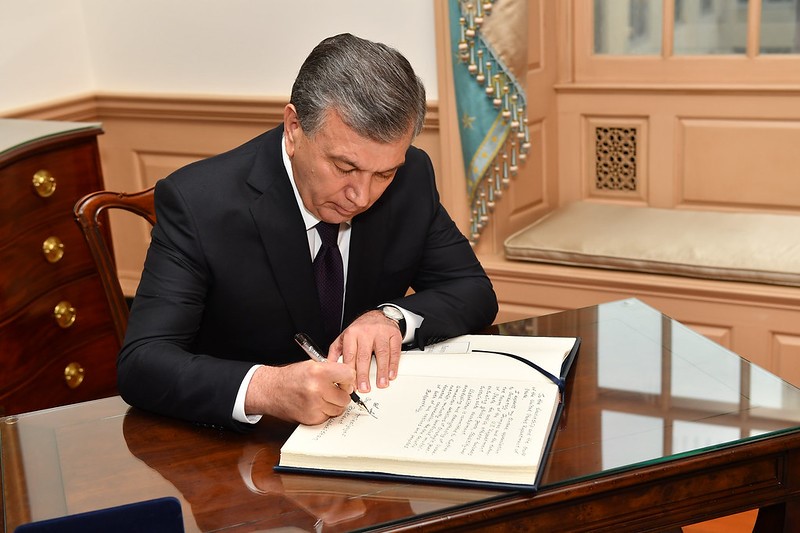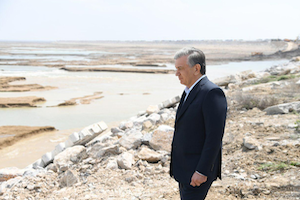The Sokh Enclave: A Breakthrough in Central Asian Cooperation
By Farkhod Tolipov
April 21, 2021, the CACI Analyst
April 1, 2021, saw the reopening of the long-awaited road connecting the Uzbek Sokh enclave, located within Kyrgyzstan, with Uzbekistan’s mainland, allowing free movement of cars and pedestrians. This became possible after the visit of Kyrgyzstan’s newly elected President Sadyr Japarov to Uzbekistan in March 2021, during which the two states announced their determination to eliminate all remaining border problems between them. Uzbekistan and Kyrgyzstan demonstrated and confirmed their relationship as strategic partners and provided a new example of Central Asian cooperation.

Managing Strategic Competition: Kazakhstan's Peacemaking Initiatives
By Svante E. Cornell and S. Frederick Starr
December 22, 2020, the CACI Analyst
In recent years, the security situation on the Eurasian continent has grown increasingly unstable. Great powers are less constrained by international norms and institutions, undermining peace and security from Crimea in the West to Xinjiang in the East. This poses a serious challenge to the states of Central Asia, caught in the center of the continent. Some, and particularly Kazakhstan, have responded by growing international activism – not least by contributing to the management and resolution of the conflicts and controversies that could affect their security. That makes these states natural partners for the United States and Europe.

The New China-Kyrgyzstan-Uzbekistan Corridor
By Emil Avdaliani
November 24, 2020, the CACI Analyst
In recent years, China has made significant economic inroads into Central Asia. A recently opened new transportation route linking Xinjiang to Uzbekistan could have large geopolitical repercussions. Although many questions remain as to how effective the corridor will be, particularly as the Kyrgyz section of the railway is still not completed, its likely continuation is via the Caspian towards the Black Sea ports. The route, a part of China’s Belt and Road Initiative (BRI), indicates the project’s success in Central Asia, which will be stoking apprehensions in Moscow.

From Tamerlane to Alexander the Great: Uzbekistan’s Evolving National Narrative
By Dmitry Shlapentokh
November 3, 2020, the CACI Analyst
After the death of President Islam Karimov, Uzbekistan’s new leadership has engaged in a transformation process structurally similar to those in the post-Stalinist USSR and post-Maoist China. Manifestations of this new reality are manifold. Some are quite visible to the public, such as the recent harsh jail term for Karimov’s daughter, accused of corruption, embezzlement, money laundering and other crimes. Other manifestations are more subtle, yet important in order to understand the new trends. In particular, a shift is underway from the emphasis of Tamerlane (Timur) as the founder of Uzbekistan to the role of Alexander the Great in the country’s antecedents.

Border Problems in Central Asia: Dividing Incidents, Uniting Solution
By Farkhod Tolipov
July 16, 2020, the CACI Analyst
In May-June 2020, Central Asia experienced several border incidents between Uzbekistan and Kazakhstan; Uzbekistan and Kyrgyzstan; Kyrgyzstan and Tajikistan. These incidents revealed once again, on the one hand, the local population’s transboundary lifestyle and on the other, the artificial character of the borders that separate independent states from each other. Similar incidents have recurred in the region with a certain frequency since gaining independence; however, none of them escalated into larger and dangerous conflicts since resolutions came quickly and were based on unique integrative arrangements.



